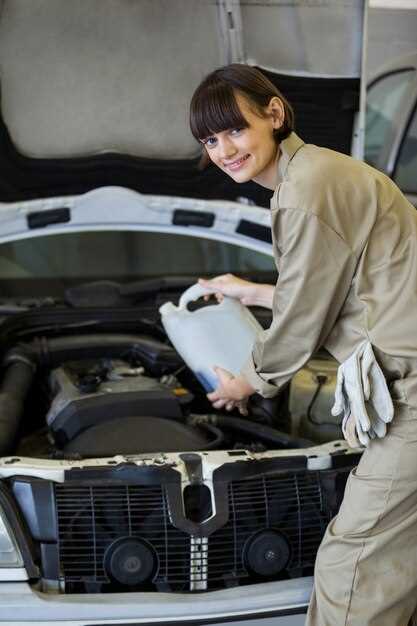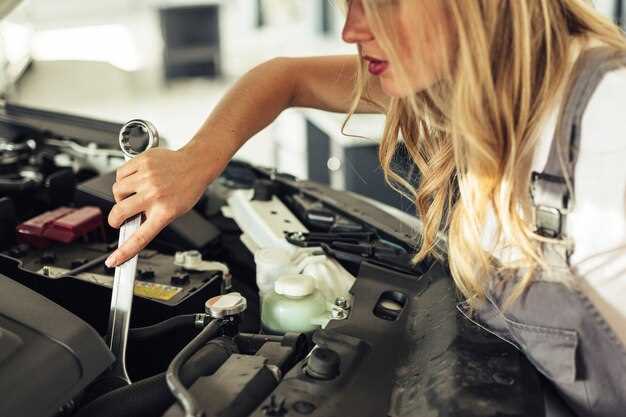
Owning a classic car is a rewarding experience that comes with its own set of challenges, particularly when it comes to maintaining the engine. The engine is the heart of your vehicle, and keeping it in optimal condition is crucial for ensuring longevity and performance. Regular maintenance and attention to detail can go a long way in preserving the driving experience that classic car enthusiasts cherish.
To keep your classic car engine running smoothly, it’s essential to adopt a proactive approach to maintenance. This includes not only routine checks and services but also understanding the specific needs and characteristics of vintage engines. Unlike modern vehicles, older engines may require different types of fluids, parts, and care practices. Being equipped with the right information and techniques will enhance your ability to maintain your classic car effectively.
In this article, we will explore various tips and strategies focused on optimizing engine performance, ensuring reliability, and enhancing the overall driving experience of your classic car. From oil changes to ignition systems, every aspect plays a pivotal role in maintaining the smooth operation of your engine. Dive in to learn how to keep your classic ride on the road for years to come.
Regular Oil Changes and Quality Lubricants
Maintaining optimal engine performance in classic cars heavily depends on proper lubrication provided by engine oil. Regular oil changes, combined with the use of high-quality lubricants, play a pivotal role in ensuring the longevity and efficiency of your engine.
Here are essential practices for effective oil maintenance:
-
Establish a Change Schedule:
Adhere to a routine oil change schedule. Depending on your driving habits and the environment, aim for an oil change every 3,000 to 5,000 miles or every six months, whichever comes first.
-
Choose the Right Oil:
Not all oils are created equal. Select an oil that meets or exceeds the specifications outlined in your car’s owner manual. Synthetic oils are often recommended due to their superior protective properties.
-
Inspect Oil Quality:
Regularly check the oil for signs of contamination or degradation. Dark, gritty oil indicates the need for an immediate change. Fresh oil should be clear and have a consistent texture.
-
Change Oil Filter:
Always replace the oil filter during an oil change. A new filter removes impurities and debris from the oil, ensuring that only clean oil circulates through the engine.
-
Consider Additives:
Engine oil additives can provide extra protection and enhance performance. Look for products that are compatible with your oil and specifically designed for classic engines.
By diligently following these practices, you can greatly improve the smoothness of your engine’s operation, reduce wear on engine components, and foster a reliable driving experience in your classic car.
Monitor Cooling System Components and Fluid Levels

Regularly inspecting the cooling system is crucial for keeping your classic car engine running smoothly. Begin with the coolant level; ensure it is filled to the recommended level. Low coolant can lead to overheating and engine damage.
Check the radiator for leaks or corrosion. Inspect the hoses for any signs of wear, such as cracks or bulges. Replace any compromised hoses to maintain maximum efficiency in the cooling system. Don’t overlook the clamps; they should be tight and secure to prevent coolant loss.
The thermostat plays a vital role in regulating engine temperature. Test its functionality periodically, as a stuck thermostat can cause overheating or underheating. Ensure the radiator cap is in good condition and properly sealing to maintain the necessary pressure in the cooling system.
Monitor the water pump as well; listen for unusual noises or leaks, as these may indicate it needs replacement. Finally, consider using distilled water mixed with antifreeze to prevent mineral buildup and enhance the boiling and freezing points of the coolant. By proactively maintaining these components and fluid levels, you can significantly extend the life of your classic car engine.
Inspect and Maintain Fuel System Integrity

Ensuring the integrity of your classic car’s fuel system is vital for optimal engine performance and longevity. Regular inspections and maintenance can prevent costly repairs and keep your vehicle running smoothly.
1. Check Fuel Lines for Leaks: Regularly inspect all fuel lines for signs of wear, corrosion, or leaks. Any cracks or loose fittings can lead to fuel leakage, which poses a fire hazard and affects fuel efficiency. Replace damaged lines promptly.
2. Inspect the Fuel Filter: The fuel filter plays a crucial role in maintaining the cleanliness of fuel entering the engine. Replace the filter according to the manufacturer’s recommendations or sooner if you notice a drop in performance or fuel pressure.
3. Monitor Fuel Pump Performance: The fuel pump is essential for delivering fuel from the tank to the engine. Listen for unusual noises during operation, as these can indicate a failing pump. Check for any loss of power or difficulty starting, which may suggest pump issues.
4. Clean and Maintain the Fuel Tank: Over time, sediments can accumulate in the fuel tank, affecting fuel quality. Occasionally, inspect the tank for rust or debris, and clean it as necessary. Consider using a fuel additive to help clean the system and enhance fuel quality.
5. Use Quality Fuel: Always use high-quality fuel from reputable sources to minimize deposits and contaminants. This practice helps maintain a clean fuel system and supports engine efficiency.
6. Check and Maintain Fuel Injectors: If your classic car is equipped with fuel injectors, ensure they are clean and properly functioning. Dirty injectors can cause poor engine performance and increased emissions. Consider using a fuel injector cleaner or have them professionally serviced if needed.
7. Regularly Inspect Fuel Connections: Ensure all fuel connections are tight and secure. Loose or damaged connections can create weak points where fuel may leak, increasing the risk of engine failure or fire.
By prioritizing the inspection and maintenance of your classic car’s fuel system, you can significantly enhance engine performance and ensure reliability on the road. Implement these practices regularly to enjoy the full potential of your classic vehicle.
